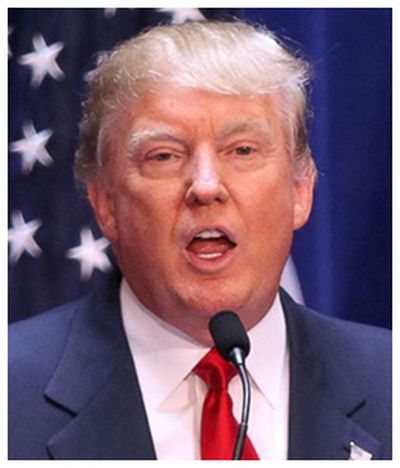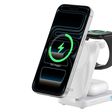 Donald Trump, a leading Republican candidate in the 2016 U.S. presidential elections, has spoken out against Apple's refusal to help the FBI access data on an iPhone 5c used by shooter Syed Farook in the 2015 San Bernardino attacks.
Donald Trump, a leading Republican candidate in the 2016 U.S. presidential elections, has spoken out against Apple's refusal to help the FBI access data on an iPhone 5c used by shooter Syed Farook in the 2015 San Bernardino attacks.
Trump, who appeared on the morning news show Fox and Friends this morning, said he agrees "100 percent with the courts" about the matter, as reported by Politico. "Who do [Apple] think they are? They have to open it up," he said.
“I agree 100 percent with the courts. In that case, we should open it up." […] "I think security, overall, we have to open it up and we have to use our heads. We have to use common sense," Trump continued, echoing his recent common refrain. Somebody the other day called me a common-sense conservative. We have to use common sense."
Apple published an open letter earlier today stating that the company will oppose an order from a U.S. federal judge that demands the company create a new version of iOS that circumvents several important security features, allowing access to encrypted smartphone data to assist the FBI's investigation.
Apple CEO Tim Cook said that while the company is "shocked and outraged" by the San Bernardino attacks last December, and presumes "the FBI’s intentions are good," the company strongly believes that building a "backdoor" for U.S. government or law enforcement would be "too dangerous to create."
Opposing this order is not something we take lightly. We feel we must speak up in the face of what we see as an overreach by the U.S. government.
We are challenging the FBI’s demands with the deepest respect for American democracy and a love of our country. We believe it would be in the best interest of everyone to step back and consider the implications.
While we believe the FBI’s intentions are good, it would be wrong for the government to force us to build a backdoor into our products. And ultimately, we fear that this demand would undermine the very freedoms and liberty our government is meant to protect.
Apple has routinely encouraged the U.S. government to embrace its "no backdoors" encryption policy. In June 2015, Cook spoke about the importance of privacy at the Electronic Privacy Information Center's Champions of Freedom event in Washington D.C., and he has made several other privacy-centric speeches as chief executive.
Apple stopped storing encryption keys for devices running iOS 8 or later, making it impossible for the iPhone maker to unlock content requested by U.S. authorities on passcode-protected devices. iOS also has an optional Touch ID setting that erases all data after 10 failed passcode attempts.
California and New York assemblymen have introduced bills that aim to ban sales of devices with such strong levels of encryption, with a $2,500 fine per phone sold in violation, but bipartisan legislation was subsequently introduced in U.S. Congress that could block these state-level efforts. None of the bills have yet to be signed into law.
Note: Due to the political nature of the discussion regarding this topic, the discussion thread is located in our Politics, Religion, Social Issues forum. All forum members and site visitors are welcome to read and follow the thread, but posting is limited to forum members with at least 100 posts.























